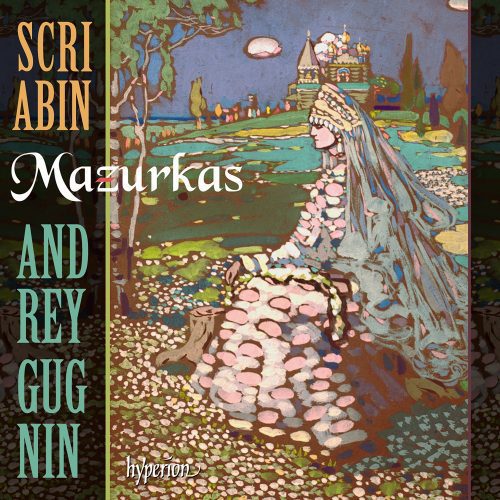The mazurka is a dance of Polish origin that was ennobled in Paris (by Chopin!) and conquered late 19th century romantic Russia. Alexander Scriabin evolved from Romanticism to an original modernism that intertwined post-romanticism, impressionism and chromatic mysticism. His Mazurkas, Op. 3, 25 and 40, an obvious homage to Chopin, are rooted in Romanticism, though they subtly herald a broadening of the tonal palette that would become the signature of his overall oeuvre. There is, in comparison to Chopin, an obvious drop of narcotic, somewhat inebriating quality in the ecstatic Russian’s mazurkas. That said, to fully appreciate this, one must listen to both bodies of work one after the other. If you are not used to hearing Chopin or Scriabin and unable to tell the difference, don’t worry: it is so beautiful that you won’t care. But if you like to scrutinize these kind of infinitesimal details, you’ll have a lot of fun doing so with this beautiful version by the young Russian pianist Andrey Gugnin. The artist offers an adequate and sensitive vision of this music. One would have liked a more Slavic character in the inflections and the suggested melancholy, as Peter Jablonski has marvelously realized on the Ondine label, recently. But never mind, we enjoyed this album that conveys the atmosphere of an old Russia, when it still felt proudly European.
Watch a documentary on the young pianist Andrey Gugnin :
























